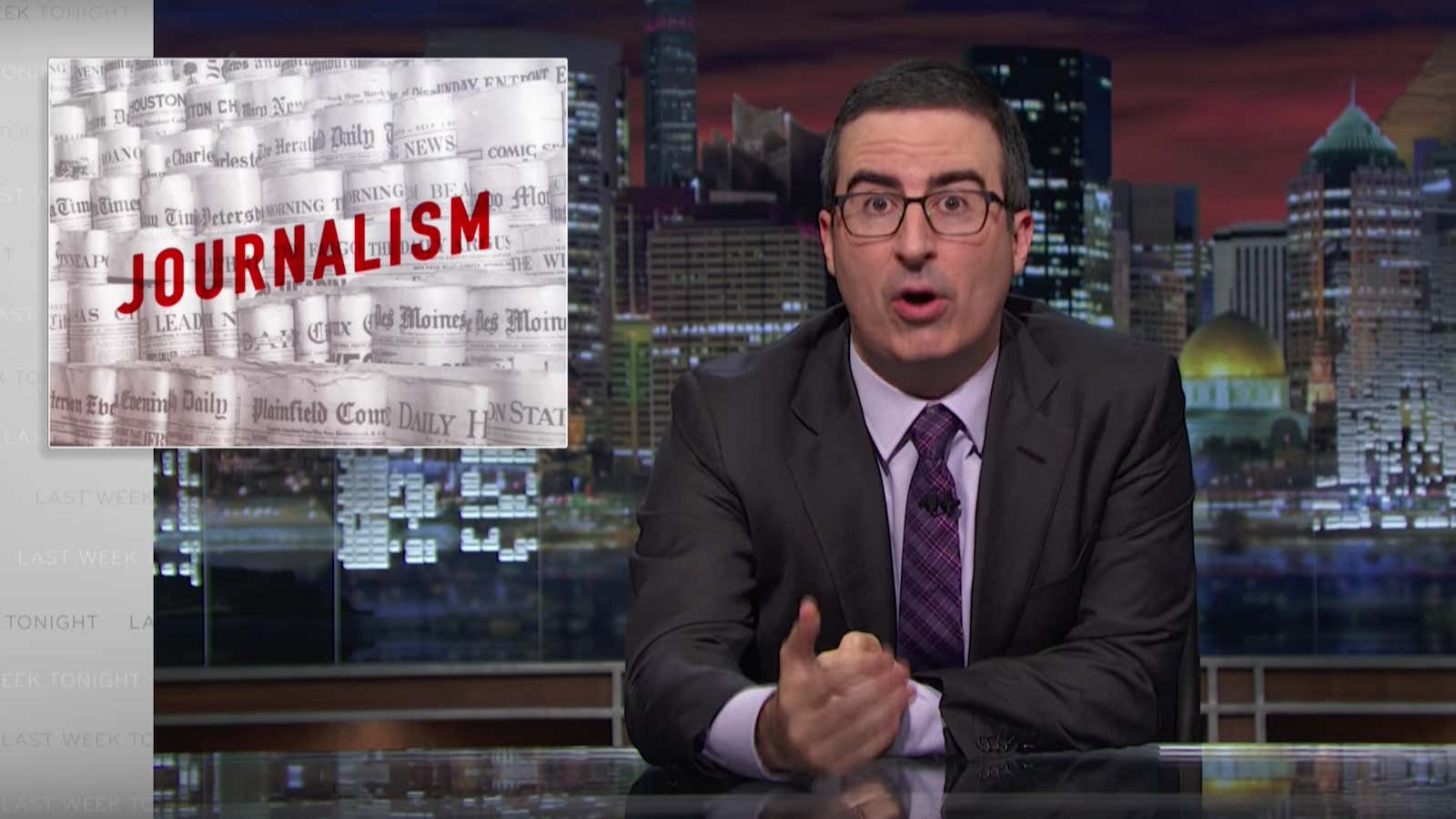On Sunday (Aug. 7), John Oliver aired a segment on his HBO TV show lamenting the demise of local newspapers due to financial pressures. “Sooner or later we are all going to have to pay for journalism,” said Oliver, “or we are all going to pay for it.”
The segment was widely discussed and shared across newsrooms around the US. But one criticism came from an unexpected source—the Newspaper Association of America.
David Chavern, president and CEO of the non-profit trade association, published an open letter Monday (Aug. 8) criticizing Oliver. He argued the host ”doesn’t offer any answers” to the questions the industry faces beyond encouraging people to pay for newspapers, and added:
The fact is that we are in a transitional phase within the entire industry. People want, need and consume more hard news than they ever have. The core demand for the product isn’t decreasing at all, and based upon that we will find our way to the far shore where the industry is thriving and growing once again. But in the meantime, there is going to be a lot of experimentation and evaluation of new business models. Some experiments will work and some won’t, and our VP of Innovation, Michael MaLoon is committed to keeping you up-to-date on what is happening on that front. But making fun of experiments and pining away for days when classified ads and near-monopolistic positions in local ad markets funded journalism is pointless and ultimately harmful.
The NAA represents the newspaper business by gathering data about the businesses and advocating for media on matters of policy, including the First Amendment.
Never ones to shy away from the painful truth, many journalists and media executives were quick to express their disappointment with Chavern’s piece.
Margaret Sullivan, media columnist for the Washington Post (which Oliver singled out as a paper relieved from economic pressures due to its owner’s deep pockets) published a response piece defending Oliver for accurately summarizing the state of the industry, and criticizing Chavern for not taking the satire in stride.
“When someone hilariously and poignantly celebrates the industry that you are paid to defend and protect, you ought to laugh at the funny parts and then simply say “thank you.” Or maybe nothing at all,” she wrote.
